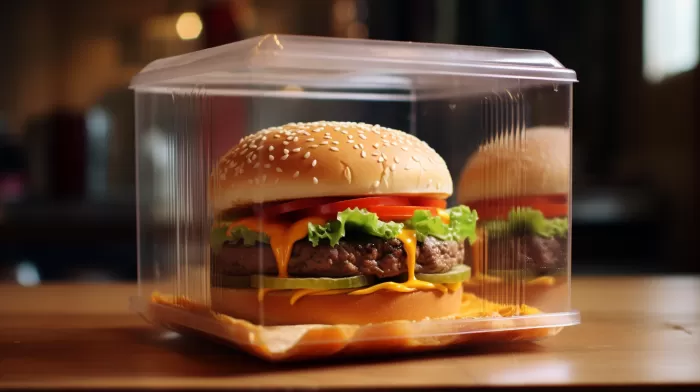Fast food the world over is seen as an indulgence, a guilty pleasure, and an unhealthy diet choice. But did you know that along with the high calories and unhealthy fats, you may also be consuming dangerous chemicals that have been linked to cancer, diabetes, endocrine disruption, ADHD, asthma, and much more?
Fast food and phthalates
In a study conducted at the George Washington University, researchers found that individuals who had consumed fast food within 24 hours of participating had significantly higher levels of phthalates in their urine than those who had not. Specifically, participants had a 23.8% higher level of phthalate DEHP and 40% higher level of phthalate DiNP in their urine.
Phthalates are industrial chemicals used in food packaging materials, including those used in fast food production. These chemicals have been known to leech into the food we consume, thereby increasing our exposure to these harmful substances. In the study, researchers linked high phthalate levels to the consumption of meat and grain fast food items such as bread, cake, pizza, burritos, rice, and noodles.
Phthalates in your home
However, the threat of phthalates doesn’t end with fast food. These dangerous chemicals are hiding in many other items you use daily. For example, they can be found in household cleaners, cosmetics, personal care products, and fragrances. Moreover, they are present in pesticides. If you’re not consuming organic produce, you’re most likely ingesting phthalates through your fruits and vegetables as well.
Phthalates also have a significant presence in plastic products. If your food comes packaged in plastic, there’s a high chance it contains phthalates. What’s worse is that these chemicals can leech into tap water from your water pipes, meaning you could be ingesting them through your drinking water.
Reducing your phthalate exposure
Unfortunately, avoiding phthalates completely isn’t possible since they are so prevalent in our environment. However, there are ways to significantly reduce your exposure to these harmful chemicals.
- Say no to fast food: Avoiding fast food not only helps you maintain a healthy weight and avoid dreaded junk food, but it also considerably lessens your exposure to phthalates in your diet.
- Opt for unpackaged, unprocessed food: Choose fresh, organic produce and groceries that aren’t packaged in plastic. This not only reduces your phthalate intake but also promotes long-term health by encouraging you to consume less processed food.
- Know your plastics: When you can’t avoid plastic packaging, inspect the plastic number. Plastics numbered 3 and 7 are more likely to contain phthalates and BPA, whereas plastics numbered 1, 2, and 5 are generally considered safer.
- Detox: Regularly detoxing your body can help flush out phthalates and other harmful substances. Dr. Isaac Eliaz recommends detoxing to help maintain your hormone balance and overall health.
If you’re worried about your diet keeping you cancer-free, Dr. Michael Cutler, author of Surviving Cancer, suggests supplementing your diet with cancer-fighting nutrients like resveratrol and omega-3 fatty acids. By making these proactive choices for your health, you’re actively combating the harmful effects of phthalates and living a long, healthy life, free of serious illnesses.



